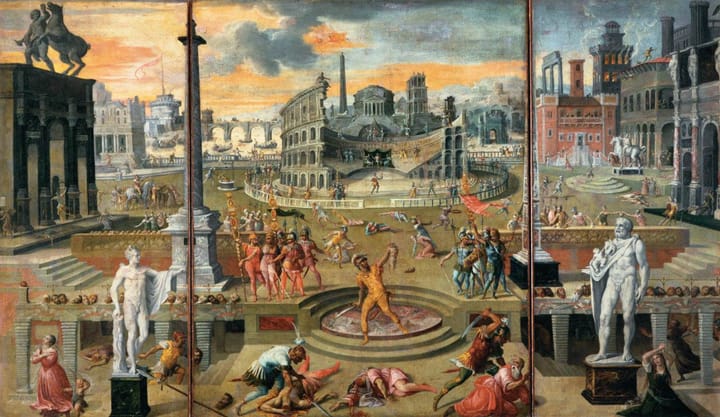One of the key lessons from the life of Montaigne is that true humility is, paradoxically, a path to power. If you're seeking power, the desire often thwarts the accrual. When you are sincerely humble and relinquish the drive for power, you become capable of thinking, acting, and writing in ways that are unique, authentic, compelling, and unpredictably impressive. These intermediate products of humility command respect and admiration through a slow, gradual process that is invisible and counterintuitive to the extreme.
Montaigne was only capable of his fundamental innovation in the history of writing—namely, the invention of the essay as a modern genre—because he completely and genuinely withdrew from society. He gave up on everything. He had no ambitions or goals for his writing, other than to determine, for himself, what he really believed to be true. There was no sense of gravity, no aspiration. He did not anticipate or feel entitled to recognition of any kind whatsoever. He optimized for nothing other than personal freedom and mental sovereignty. By ignoring all social, cultural, and political incentives, he accidentally entered onto an entirely new way of thinking and producing written work.
We also see this paradox of power play out on a longer timescale. For it is only many years later, after more than ten years of imperceptible creative labor, that he unexpectedly finds himself, at age 50, nominated to the mayorship of Bordeaux. Here is how Stefan Zweig describes this event in his biographical essay on Montaigne:
"Then something strange occurs. At the very moment when he is withdrawn from the world and entirely turned in on himself, the world seeks him out. As a young man, he petitioned for public life and stateliness. Then he was spurned. Now those in power wish to foist these things on him. In vain did he offer his services to kings and make approaches to the court. Now they want to raise him to new positions, ever more prestigious. At the very moment when he seeks only to locate the man who is his true self, others recognize his genuine worth."
—Stefan Zweig, Montaigne (1942)
As I intimated recently in The Medium and the Light, I think humility remains badly misunderstood and under-appreciated. For too long have we been swayed by an uncritical, second-hand Nietzschean antipathy to meekness and all that sounds like "slave morality." In the deepest enactments of sincere humility we seem to find the most extraordinary and paradoxical becomings.
